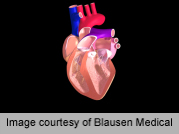
MONDAY, Nov. 5 (HealthDay News) — Heart attack has a high economic cost for survivors and their employers due to lost time and income from work and the patient’s possible inability to return to work, according to a new study.
Researchers analyzed medical, pharmacy, and short- and long-term disability claims to calculate the direct and indirect costs of acute coronary syndrome in more than 37,000 workers. Of those employees, 77 percent were men and 95 percent were younger than 65.
Acute coronary syndrome is a blanket term for situations in which the blood supply to the heart suddenly stops and includes heart attack and chest pain (angina).
The researchers found that the annual health care cost for each worker, including out-of-pocket expenses, was nearly $8,200. Of that, more than $7,500 was for medical care including hospitalizations and $625 was for pharmacy costs.
Workers with acute coronary syndrome lost about 60 days of work in the short term and nearly 400 days over time. For employers, the estimated per claim disability loss for was about $8,000 for short-term disability and more than $52,000 for long-term disability.
Hospitalizations accounted for 75 percent of total yearly costs, according to the study, which was scheduled for presentation Monday at an American Heart Association meeting in Los Angeles.
“[Acute coronary syndrome] can have devastating effects from an economic standpoint on employers in terms of lost productivity, but, more importantly, on costs to the employee reflected in the average lost time per incident,” lead author Robert Page II, associate professor of clinical pharmacy and physical medicine at the University of Colorado School of Pharmacy, said in an association news release.
Page noted that about 47 percent of all acute coronary syndrome patients are younger than 65.
“We want to target individuals early on in terms of risk factor modification, including smoking cessation, weight loss, appropriate diet, pharmacotherapy for high cholesterol and high blood pressure,” said Page, who also is a clinical specialist in cardiology at the university.
The study was funded by Janssen Pharmaceuticals, Inc.
Because this study was presented at a medical meeting, the data and conclusions should be viewed as preliminary until published in a peer-reviewed journal.
More information
The U.S. Centers for Disease Control and Prevention offers heart disease prevention tips.

